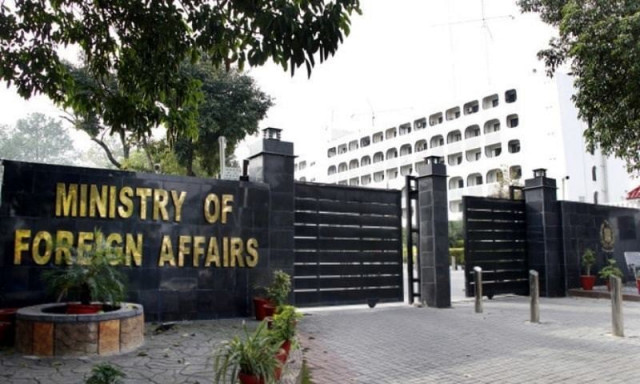ISLAMABAD/WASHINGTON:
Pakistan on Saturday welcomed a US-brokered peace agreement between Armenia and Azerbaijan aimed at ending decades of conflict in the South Caucasus.
US President Donald Trump announced the deal at the White House on Friday, saying the two countries had committed to “stop all fighting forever, open up commerce, travel and diplomatic relations and respect each other’s sovereignty and territorial integrity.”
Pakistan’s Foreign Office said in a statement that the “historic moment” reflected the “wisdom and sagacity” of Azerbaijan’s leadership in resolving the long-running dispute. Islamabad also praised Trump’s role in “fostering conflict resolution and promoting peace across various regions of the world.”
Prime Minister Shehbaz Sharif said the agreement marked “the dawn of a new era of peace, stability and cooperation in the South Caucasus” and congratulated Azerbaijan’s President Ilham Aliyev and the Azerbaijani people. He also lauded Washington’s “facilitation role” in securing a settlement that could open “new avenues for trade, connectivity and regional integration.”
Trump stood alongside Aliyev and Armenian Prime Minister Nikol Pashinyan as the two leaders signed a “joint declaration” committing to end hostilities and normalise ties. The deal includes the creation of a transit corridor through Armenia linking Azerbaijan to its exclave of Nakhchivan. The United States will have development rights for the route, which the White House has dubbed the “Trump Route for International Peace and Prosperity.”
Aliyev called the signing “historic” and said he and Pashinyan would jointly nominate Trump for the Nobel Peace Prize. Pashinyan described the accord as a “breakthrough” that would “open a new era” for the region, crediting Trump as the “peacemaker” behind it.
The agreement follows decades of hostility between Christian-majority Armenia and Muslim-majority Azerbaijan, which fought two wars over the disputed Karabakh region. Azerbaijan recaptured the territory in a 2023 offensive, triggering more than 100,000 ethnic Armenians to flee to Armenia.
Regional and international powers welcomed the accord. Turkey hailed “progress towards a lasting peace,” the European Union called it a path to “sustainable peace” in the Caucasus, and Britain praised the “bold steps” taken in Washington.
Iran, which has long opposed the Nakhchivan corridor over concerns it could limit its access to the Caucasus, also welcomed the deal but warned against “negative consequences of foreign intervention” near its borders.
While the text of the agreement was finalised in March, signing was delayed by Baku’s demands that Armenia amend its constitution to drop territorial claims over Karabakh. Pashinyan has pledged a referendum in 2027 on constitutional changes, a move that remains politically contentious in Armenia.
A White House official, speaking on condition of anonymity, said Armenia’s gain from the deal was “an enormous strategic commercial partner, probably the most enormous and strategic in the history of the world: the United States of America,” adding that “the losers here are China, Russia and Iran.”

